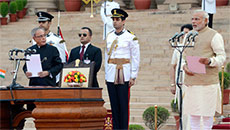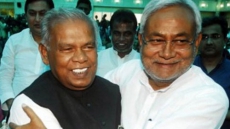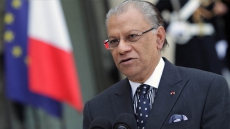Creative literature is generally linked to a writer's mother tongue. Not so Rajvinder Singh, an Indian-origin poet whose German oeuvre has seen over a hundred articles written on him over the years.
Essentially a poet and a short story writer, besides being a feature journalist, this "Punjabi by heart" has 14 anthologies of poetry to his credit, two in his mother tongue and 12 in German, which he lovingly calls his "stepmother-tongue".
Based in Berlin since January 1981, the 60-year-old bearded Rajvinder Singh's latest project is to make literature in modern Indian languages accessible to the wider world through translations. To this end, he is now translating Punjabi novel 'Parsa', by Gyanpeeth award winning novelist Gurdial Singh, into German.
And, for getting the hang of the Malwai Punjabi culture and the Malwai dialect of the Punjabi language, in which almost all of Gurdial Singh's books are written, Rajvinder Singh is visiting the places around which the novel revolves.
This three-time German poet laureate, who has been lauded for enriching the German vocabulary, told IANS that it will be more than a word-to-word translation of the 380-page 'Parsa', penned in 1991.
Declared poet-laureate in three of the 12 German states, Rajvinder Singh, who wrote his Ph.D. thesis in semiotics at Berlin's Technical University, holds that translating from Punjabi to German is not an easy task. Both the languages have completely different dictions.
"Parsa is the rarest of the rare novels. It revolves around the complex simplicity of village life, with the inroads of all that goes with it. It showcases how traditions and cultures determine the life of a man," Rajvinder Singh told IANS in an interview while on a visit here.
"Translation itself is a herculean task, especially when the expressions are written in a colloquial style," Rajvinder Singh, who in addition to German and Punjabi, also writes in English, Hindi and Urdu. He is also a former National Fellow of the Indian Institute of Advanced Study (IIAS) in Shimla.
"To do justice to the original expressions, I have to create new expressions in German," he said, adding: "Five pages of Punjabi text can easily become six to seven pages in German."
"The basic purpose of my translation is to showcase Indian literature in world literary circles. It's simply the dominance of Indian English writings over the other Indian language writings that is preventing the multi-dimensional literary works from 23 Indian regional languages getting global recognition," he said.

For foreign publishers it becomes very easy to get an Indian English book translated in other European languages.
"The pity is that Indian universities, academies of literature and the Indian government are not doing enough to train translators from the Indian languages. For a multi-lingual country like India, it's a must that we give scholarships to foreign students to learn our languages to train them as potential translators," he said.
Rajvinder Singh, who was born in Punjab's Kapurthala town and had spent his initial years also in Chandigarh and Jammu, occupies a pretty prominent place in German literary circles.
His poems are inscribed in stone are displayed at four public places, which include the city park and three senior schools in Trier, one of the oldest German cities where Karl Marx was born and brought up.
Rajvinder Singh is the only living poet, certainly the only living Indian poet whose verses have been cast in stone and displayed in public park and schools.
How did he achieve this mastery in German? "One always learns one's mother tongue unconsciously, but one learns other languages very consciously," he explained.
"For me, too, learning German was an ultra-conscious act that I had to accomplish and acquire a certain mastery through laying bare the etymology and morphology of this language to be able to write in it."
Adding a poetic touch, Rajvinder Singh said: "Trees are our outer heart, which provide us with 60 percent of the oxygen we need. The message, hence, is clear: Save the trees. It's a pity that the movements, such as Chipko by Shri Sunderlal Bahuguna don't flourish in India any more."
The poet, who launched a 'Nobel for India 2013' campaign and was declared the poet laureate of Trier in 2007, said: "I am simply a dialogue addict whose basic engagement is to promote understanding amongst people in general through dialogue as I now belong to both India and Germany. It's natural for me to promote Indo-German educational and cultural partnerships."
Towards this, he had accompanied German Foreign Minister Frank-Walter Steinmeier on his visit to India last September and had met various art groups and artists in New Delhi.
It remains to be seen whether and when the Indians would take notice of his ideas!




